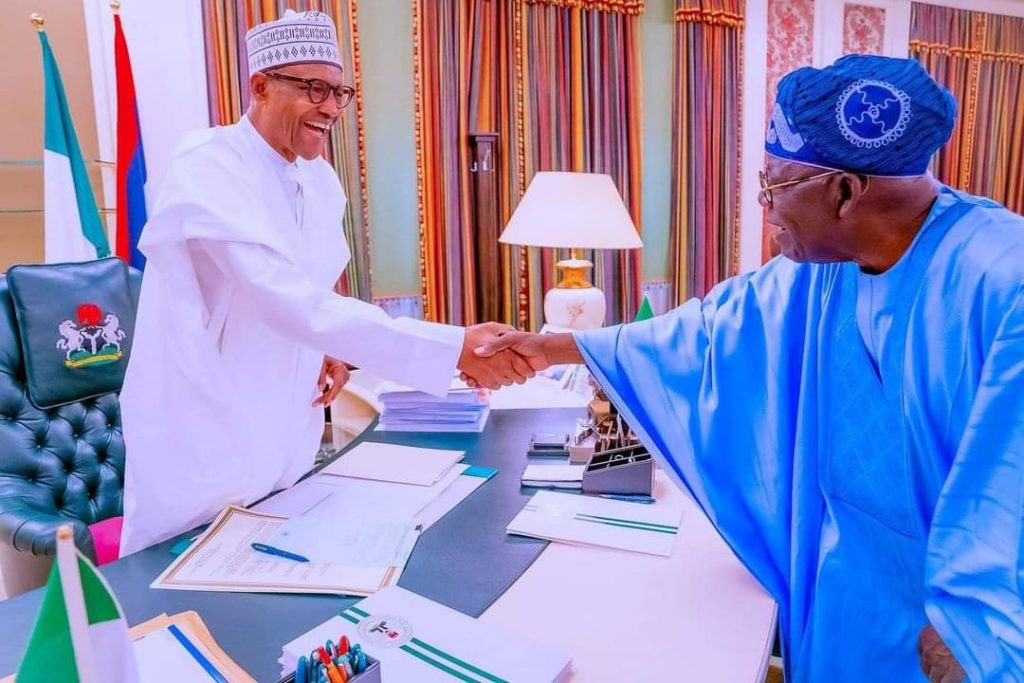Today, the eight-year-old administration of President Muhammadu Buhari will come to an end. As he bows out, his political ally, Senator Bola Ahmed Tinubu, will step into his stead as the President of the Federal Republic of Nigeria and Commander in-chief of the Armed Forces. The event is both a sweet and sour taste for many. In the cloud of the celebration looms the uncertainty of the decision of the Judiciary on the future and tenure of the incoming administration. Whichever side the pendulum swings, the fact of today is that the former governor of the centre of excellence, Senator Tinubu is Nigeria’s President. The fifth in the count since the fourth republic.
The new president comes to the office with so many baggage – the frailty of his health, the disputed legitimacy of his mandate, the opacity of his life history and public service record, and the sincerity and tenacity of his political will. Not minding that the political currency placed on his administration by a larger percentage of the youth might be as dangling as Nigeria’s Naira, the reality that he is in possession of the political machinery now is crystal clear and it is expected of him to hit the ground running. It, therefore, lies on him to stir this ship of the Nigerian nation to her “promised land”.
Most of the challenges facing the country are still either there or worse than the Buhari administration met them in 2015. The administration was marred by sectional and regional conflicts that were fueled by the complicity of the federal government’s inability to show impartiality in dealing with violence that had tribal colourations. The farmers-herdsmen crisis comes to mind. The threats by the Miyetti Allah bare itself. The nepotism and definitive religionalism and regionalism that attended major appointments into public offices remain unseated.
As the new administration comes on seat, it is the prayer of many Nigerians that it shows clear indication that it wishes to change the status quo. It is heartwarming that it seems this perspective is well understood as the theme for the inauguration ceremony is captured “Nigeria: Better Together”. Nevertheless, it should not end at being a one-day event lingo but should transcend the fabrics of the new administration. It must be heard, seen, and felt. Justice, in the allocation of our nation’s scarce commonwealth, must be seen to be done by every region, majority and minority group. It must be deliberate.
It must be equitable. The words of George Orwell in his classic novel, Animal Farm: “all animals are equal, but some animals are more equal than others” must not be in play again. Nigeria must be a land of opportunities where everyone will exercise their potential and reach their dreams without sentimental bottlenecks.
The administration of President Buhari is ending after eight years, without fulfilling one of its major promises of revamping the nation’s moribund refineries. This is despite numerous efforts, allocations and borrowings that were targeted at the project. It is, however, ending with a promise coming from a private sector led initiative. Few days ago, President Buhari commissioned the 650,000 barrels per day capacity Dangote Refinery. As much as this seems to look like the game changer, one wonders how much and how far it will go to address the energy needs of Nigerians and increase her international share in the oil and gas market. It is then consequent on the new administration to find solutions to revamp the Portharcourt, Kaduna and Warri refineries or think of ways to concession them to private managers. It is factual that such enterprises are better run when in private hands.
Beyond the oil wealth, the new administration must look for ways to diversify the country’s economy. Not like a sing song without action that it was in the last four years. Vigorous and workable policies must be implemented in agriculture, waterways, trade and commerce, science, technology and innovation and the digital space. The new government must be ready to tour new and uncharitable frontiers if it desires to lead the path of progress. It might be unconventional but it must be progressive. Such must also be witnessed in the country’s fiscal and monetary policies, fight against corruption, strengthening of democratic institutions and the protection of freedom of the press.
Yet, the resolve of the administration will be tested first when it fields its team. It is expected that it will understand the dire situation of the country and avoid seeing appointments into the new cabinet as opportunity to grant political favours.
Written by ABS EDITORIAL





Comments are closed for this post.